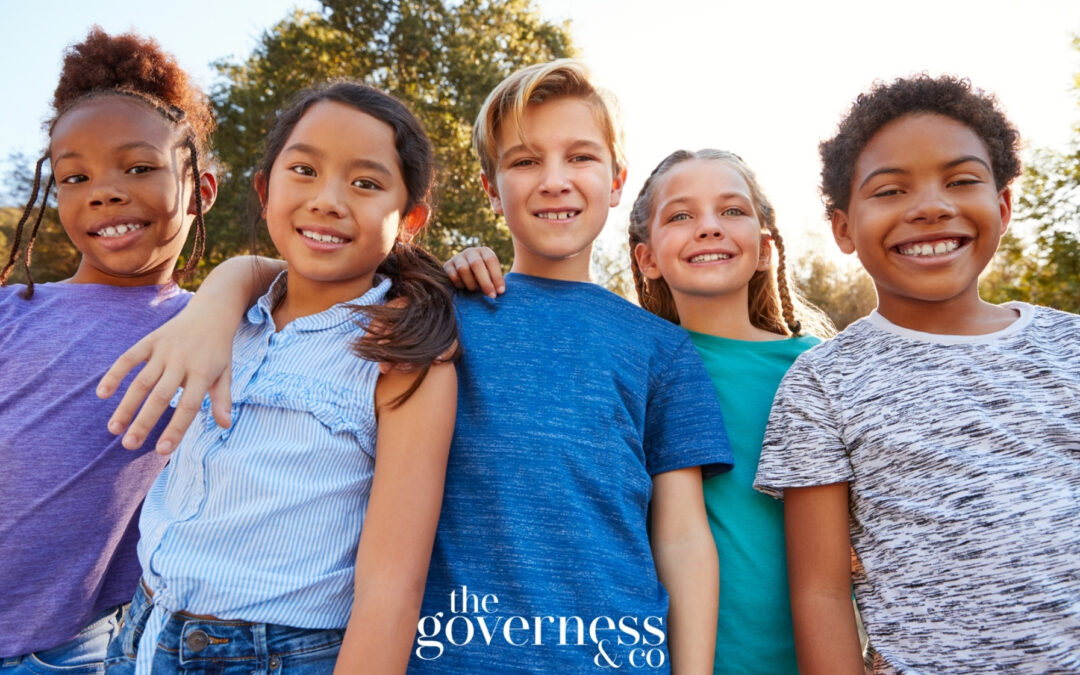In the realm of childcare, one of the most vital elements often overlooked is cultural sensitivity. Governess & Co believes in creating an inclusive environment from a young age, respecting and celebrating diverse backgrounds. Understanding the significance of cultural sensitivity in childcare is paramount to fostering an environment where every child feels valued and understood.
Why Cultural Sensitivity Matters: Cultural sensitivity in childcare is a fundamental aspect of creating a nurturing and supportive environment for children. Continue reading to find out why we believe it’s so crucial.
Identity Development: According to Charlotte, a nanny from Governess & Co, children develop their sense of identity from an early age, and much of this identity is influenced by their cultural background. By acknowledging and respecting their cultural heritage, caregivers can help children develop a positive sense of self and others.
Inclusivity: Every child deserves to feel included and valued regardless of their cultural background. At Governess & Co we reiterate the importance of cultural sensitivity, ensuring that no child feels marginalized or alienated due to their heritage.
Effective Communication: Our Governess’s aim is to understand a child’s cultural background, in order to improve communication between caregivers, children, and their families. It helps in building trust and rapport, which is essential for effective caregiving.
Promoting Diversity: By incorporating diverse cultural perspectives into daily activities, childcare settings can promote diversity and teach children the value of inclusivity and respect for others.
Tips for Incorporating Cultural Sensitivity into Daily Activities: Learn About Different Cultures: Take the time to educate yourself about the cultural backgrounds of the children in your care. This includes learning about traditions, holidays, customs, and values that are important to their families.
Respect Language Diversity: If children in your care speak languages other than the dominant language, respect and acknowledge their linguistic diversity. Encourage bilingualism and provide opportunities for children to share their language with others.
Celebrate Cultural Holidays and Festivals: Incorporate cultural holidays and festivals into your curriculum. This could involve reading books, preparing traditional foods, making crafts, or engaging in cultural activities related to specific celebrations.
Foster Inclusive Environments: Ensure that your childcare setting is inclusive and welcoming to children from all backgrounds. Display diverse books, toys, and artwork that reflect the cultural diversity of the children in your care.
Involve Families: Collaborate with families to learn more about their cultural traditions and how they can be incorporated into the childcare setting. Encourage families to share stories, artifacts, and experiences with the children.
Promote Cultural Exchange: Create opportunities for children to learn from each other’s cultural backgrounds. Encourage them to share stories, songs, dances, and traditions with their peers.
Be Open-Minded and Flexible: Approach each child with an open mind and be willing to adapt your practices to accommodate their cultural needs and preferences.
In conclusion, Governess & Co believes that cultural sensitivity is not just a nice-to-have aspect of childcare; it’s an essential component of creating a nurturing and inclusive environment for children. By respecting and incorporating diverse cultural backgrounds into daily activities, caregivers can help children develop a positive sense of identity, promote inclusivity, and foster an appreciation for diversity from an early age.

